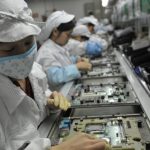Unlock the Editor’s Digest for free
Roula Khalaf, Editor of the FT, selects her favourite stories in this weekly newsletter.
Japan’s Takeda Pharmaceuticals has reached an up to $2.2bn deal to develop an Alzheimer’s vaccine made by Swiss start-up AC Immune, as pharmaceutical companies race to invest in potentially lucrative new treatments for the disease.
The vaccine is one of a wave of new drugs heading for the market. These include lecanemab, developed by Japanese company Eisai, which received US regulatory approval last year.
In the Takeda deal, AC Immune will receive an upfront payment of $100mn, rising to $2.1bn if milestones are reached, as well as more than 10 per cent in royalties from any worldwide sales.
The Japanese group could advance the product to late stage, phase 3 trials, AC Immune said, but regulatory approval could take several years. Early trials had identified no safety concerns, said Andrea Pfeifer, chief executive of the biotech. But AC Immune would not have efficacy data for the drug until it completed a mid-stage trial within the next 12 months.
In Alzheimer’s, abnormal levels of beta amyloid protein clump together to form plaques that disrupt cell function. Drugs such as lecanemab — which slowed disease progression by 27 per cent over 18 months in clinical trials — work by reducing these amyloid plaques.
While lecanemab and donanemab, a drug made by Eli Lilly that is awaiting approval, deliver antibodies against beta amyloid via infusion, AC Immune’s ACI-24.060 vaccine induces an immune response that causes internal production of antibodies against the protein.
“The profile of the antibodies made by our vaccine is very similar to the validated antibody drugs and this was probably a major driver of a deal,” said Pfeifer.
Lecanemab is priced at $25,600 a year and is delivered via 38 infusions over an 18-month course. Patients require regular MRI scans to monitor for potentially dangerous side-effects such as brain bleeds. Other regulators, including the UK’s MHRA, have not yet approved the drug.
Pfeifer said that antibody infusion drugs could be expensive and require infrastructure to deliver regular doses and monitor patients, while vaccines could be administered more cheaply and just two to four times a year.
Up to 70 per cent of the 55mn people worldwide with dementia have Alzheimer’s and the number of people with the disease is expected to rise to 139mn by 2050 as populations age.
Pfeifer said that a vaccine could eventually be used to treat people before they developed Alzheimer’s.
Previous attempts at creating a vaccine against the disease have caused the immune system to attack healthy cells. Pfeifer said that there was now a better understanding of how to get the body to produce antibodies specific to unwanted beta amyloid.
Sarah Sheikh, head of Takeda’s neuroscience therapeutic area unit, said the company was “excited to partner with AC Immune on this groundbreaking treatment approach”.
Read the full article here












